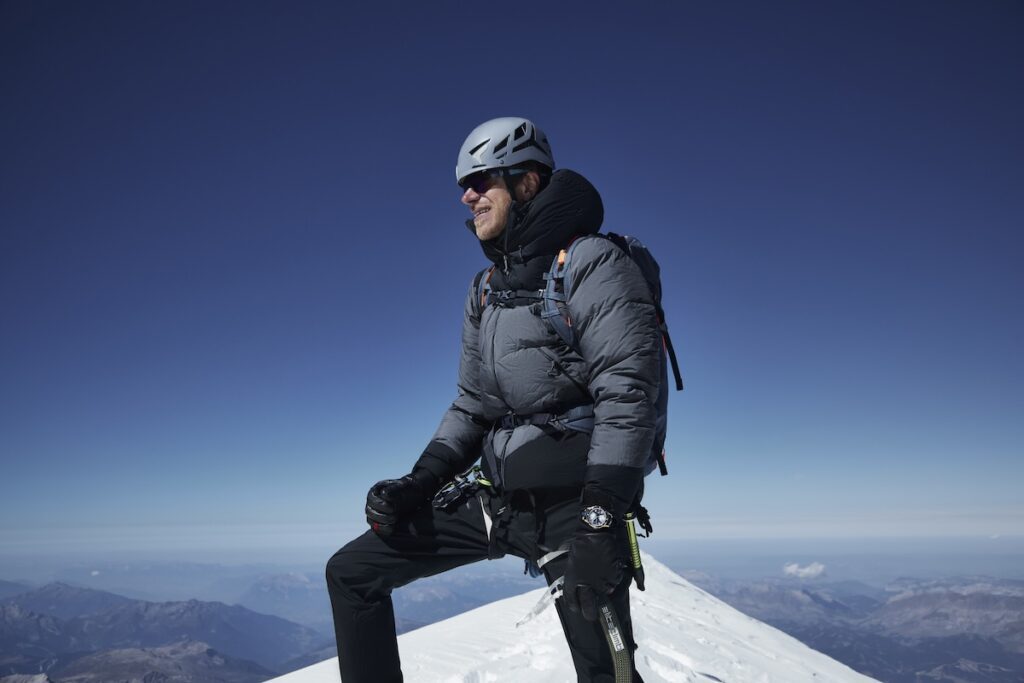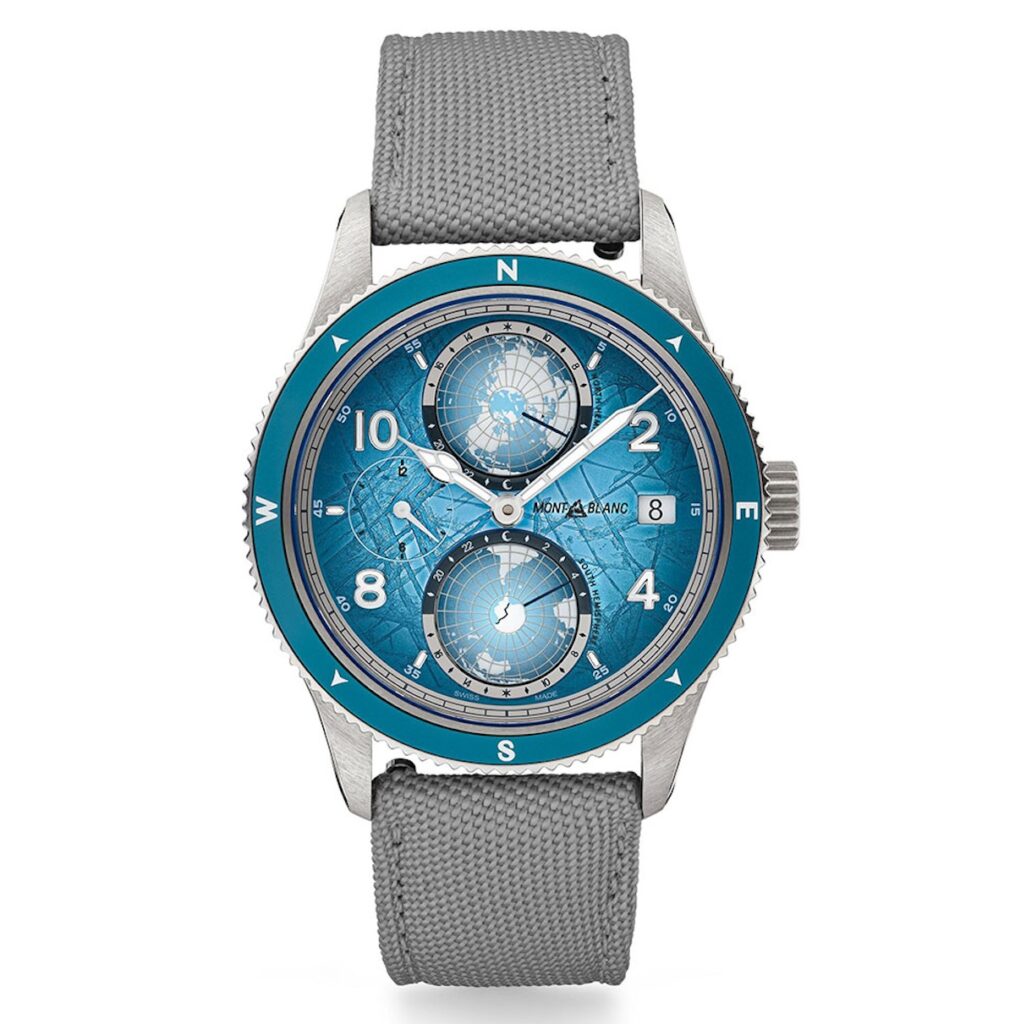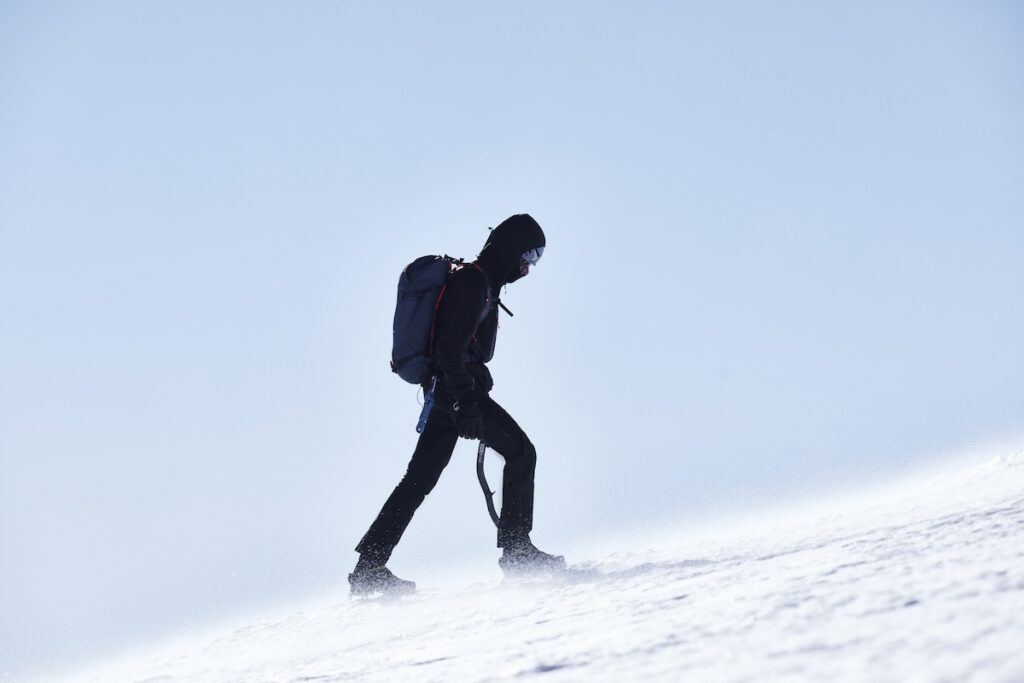This website uses cookies so that we can provide you with the best user experience possible. Cookie information is stored in your browser and performs functions such as recognising you when you return to our website and helping our team to understand which sections of the website you find most interesting and useful.
Interview: Mountaineer Simon Messner on attempting the Antarctic Ice Marathon with Montblanc
By Shivani Dubey | 11 December 2023 | Sport, Style
As Simon Messner attempts the most daunting expedition of his career, we speak to him about the challenges and how he plans to put his Montblanc watch to the test
 Simon Messner has known mountains his entire life. The son of mountaineer Reinhold Messner, he ended up taking a liking to the adventure sport as well — much to his father’s chagrin. Now, a bonafide alpinist and mountaineer in his own right, Simon has taken on his biggest challenge yet: the Antarctic Ice Marathon of wilderness.
Simon Messner has known mountains his entire life. The son of mountaineer Reinhold Messner, he ended up taking a liking to the adventure sport as well — much to his father’s chagrin. Now, a bonafide alpinist and mountaineer in his own right, Simon has taken on his biggest challenge yet: the Antarctic Ice Marathon of wilderness.
On 13 December, the marathon will begin just a few hundred miles from the South Pole, at the foot of Ellsworth mountains, and at an altitude of 700 metres. The conditions dire, as snow and ice pelts from every direction, with temperatures dropping down to minus 20 degrees. On top of that, strong katabatic winds will also be in play.
And in the midst of all that, Simon has decided to put Montblanc’s limited edition 1858 Geosphere 0 Oxygen South Pole Exploration watch to the test. We spoke with him about the challenges of this marathon, his preparation process, his career, his Montblanc watch and more.
So I’m going to start with a very easy question, when did you start climbing and what made you decide to do this professionally?
I started many years ago, when I was 15-16 years old. And I immediately knew that this is what I wanted to do. This is exactly what I was searching for. It was not that easy for me, because I was very afraid of heights, so I had to work a lot on myself. In the end, I think mountaineering is exactly this: to experience yourself. The mountain is just there. And so I fell in love with this activity.
Attempting the Antarctic marathon is a very daunting task. What do you even do to prepare for something like that?
I know more or less how it feels to move in cold temperatures. But I was never running in these temperatures. So this is something very new for me. Running was always a part of my training because it helps you stay fit. However, I did mostly uphill running. And I never did a distance of like 40-50 kilometres. So I started to run longer distances about half a year ago. And I slowly tried to progress towards running longer distances in a shorter period of time. I tried to do my training in bad weather, in cold weather, on the snow a little bit to experience all the possibilities. So this was mostly my training.
What are the challenges of this race that you’re most looking forward to conquering?
(Laughs) I think I will be happy if I can just finish this marathon! I will give my best and try to run a good time. The biggest challenge is the cold, because it’s not that you cannot run in the cold, but at a certain point, everything freezes. I’m interested to see how that works if you have to run this whole distance. This is maybe the biggest challenge.
But then, this is the Antarctic, so if there are strong winds, things can be blown away. So there are a lot of question marks. This is the same as mountaineering. If you start an expedition, in the beginning it’s a huge question mark. And slowly as you get to the foot of the mountain, this question mark gets smaller. I hope it’ll be the same in Antarctica.
 You’re going to be using Montblanc’s South Pole Exploration watch during your expedition. What features of the watch are you looking forward to testing out the most?
You’re going to be using Montblanc’s South Pole Exploration watch during your expedition. What features of the watch are you looking forward to testing out the most?
I had a really good experience last year when I was climbing Mont Blanc with the watch of Montblanc. When mountaineering, every gram counts, so weight is very important, and this Montblanc watch is very light for this type of watch. However, the most important thing for me is that there’s no oxygen inside the watch’s case. And so there’s no fogging. It sounds simple, but in such harsh conditions, if your watch is fogging, you are not able to read anything. So zero oxygen prevents fogging and it helps to keep the watch running for a very long time. It’s just a great feature for mountaineering and outdoor sports. And it also tells me the time.
Why did you decide to go for this watch? What is it about Montblanc that appeals to you?
I was invited to Villeret, which is where most of the watches are produced by hand, and I was fascinated. I was given the opportunity to try and put together some of these very small pieces. And you can imagine with the hands of an alpinist, it was nearly impossible. I was just amazed. I’m convinced watchmaking is a really high art — as is mountaineering. So, it sounds really strange, but what I’m searching for in a watch is simplicity.
In mountaineering, the most valuable climb is done when you don’t need helicopters, or artificial oxygen, or when there are no high temperatures — when you don’t need help. And I see a little bit of that in watchmaking as well. So if you are able to produce a watch, which is simple but works very well… For example, Montblanc uses a very special kind of titanium, which lasts for a long period of time. This is what I’m searching for. Simplicity, along with material that is very durable. That is the highest art of watchmaking.
Has your father given you any tips ahead of the marathon?
Nothing ahead of the marathon, but he gave me some really important advice when I was starting to climb. He was saying, “I’m not that happy that you’re climbing. Obviously, you’re free to do this, you’re your own person — just try to never fall.” This is a very simple sentence, but in the end, it’s true. In climbing, you can do a lot of things until you fall. You’re not allowed to fall. It sounds so simple, but again, it has helped me the most.
 You mentioned your father was not initially happy that you were following in his footsteps. Why is that?
You mentioned your father was not initially happy that you were following in his footsteps. Why is that?
It’s difficult. As a boy I thought at least my father would understand why I’m planning to climb. But it’s probably because he’s just afraid. There’s no other person on this planet who knows how dangerous it is. So I can imagine that for the most part, he is just afraid. And I do understand this because now, if I had a child, I would feel the same. I would be very afraid — not for me, but for my children.
How do you think your career has prepared you for this marathon?
I have a feeling it’s just the natural step. When I was a child, I was very fascinated by mountaineering. My father was always telling me these emotional mountain stories. And at a certain point, there was no other possibility. I had to go and see how it feels. And I think that the marathon is something similar. It’s just the logical next step, to see how it feels to run a big distance in really harsh conditions. And I can’t wait to go there and just do it.
Thank you Simon. It has been lovely speaking with you and good luck with your marathon. One last question before I leave you: who or what inspires you?
Thank you! To answer your question, many people. I am inspired by outstanding achievements, especially if you know, more or less, what it takes to grow. I have also always been fascinated by personalities, especially when we’re speaking about mountaineers, there’s somehow a very deep aura. I don’t know how to describe this, but you experience some very strong moments that shape you. Many people inspire me, but one of them is my father, for sure. He’s a top climber and mountaineer. But what really inspires me is the willpower. The fact that you believe something is possible in your head and you use your willpower to achieve those goals. That’s the real thing.







